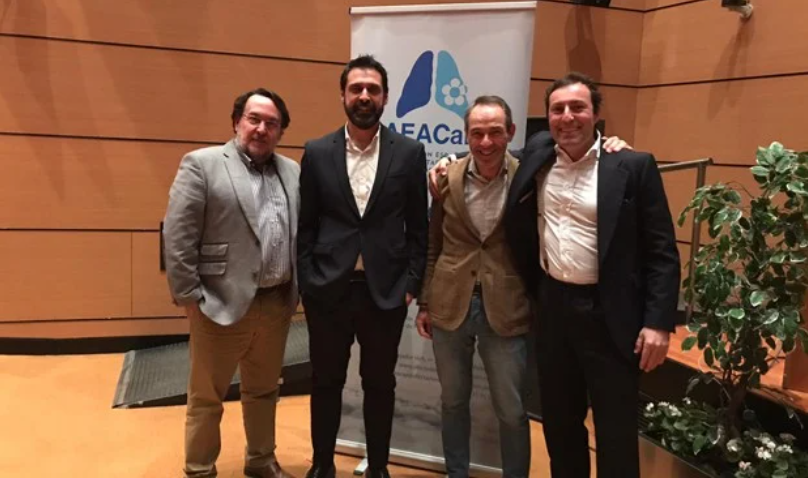The company will develop projects to improve the quality of life of lung cancer patients.

The Spanish Association of Lung Cancer Patients (AEACaP) and the Spanish biotech company Sabartech have signed a collaboration agreement by which the biotech company undertakes to finance projects during 2020 aimed at training, developing and promoting the improvement of the quality of life and well-being of patients and people affected by lung cancer and other associated pathologies, as well as obtaining and providing them with the maximum and most up-to-date information on this disease.
In addition, the agreement aims to promote relations with medical societies and professional groups and to provide advice on lung cancer and other related pathologies to public and private bodies in any territorial, national or international demarcation.
The agreement will also facilitate cooperation in the dissemination of studies developed by specialists, researchers and health professionals, and will promote the organisation of meetings, conferences, colloquiums and congresses on lung cancer and health education campaigns aimed at both medical and health professionals and the general public.
Limited patient association structure
Bernard Gaspar Martínez, president of AEACaP and Javier Sarasqueta & Javier Escobar (CEO & CSO of Sabartech), were present at the signing of the agreement. “Given the limited structure of patient associations in Spain and the limited economic resources of many people affected by lung cancer and other associated pathologies, AEACaP needs collaborations, particularly in its current phase of growth and consolidation, in order to ensure its viability and to carry out various activities in fulfilment of its aims.
Due to the health and social interest of AEACaP, and the benefit to the community that derives from the fulfilment of its aims, we wish to collaborate with AEACaP,” said Sarasqueta. Lung cancer is the leading cause of death from tumours in Spain. In 2018, mortality from this cancer has risen again, after having fallen in 2017. Thus, in 2018, there were 0.2% more deaths from this type of tumour in Spain than in 2017.






